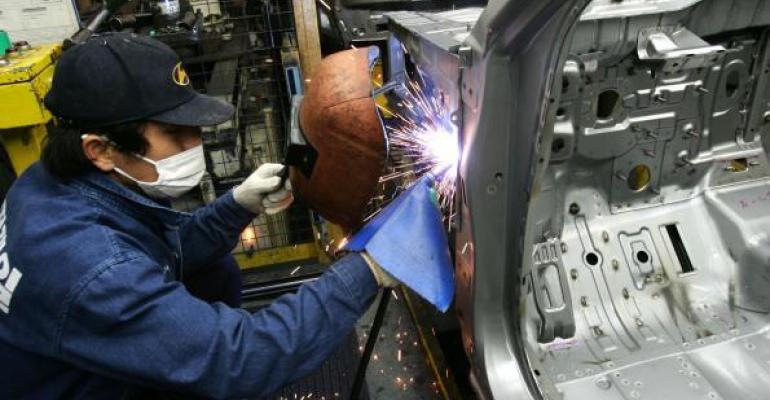Labor tensions at Hyundai spill over from the shop floor to the streets as nearly half of the automaker’s Korean hourly workers walk off the job for two hours as part of a broader nationwide strike.
Police estimate 69,000 workers participated in Wednesday’s general strike called for by the militant Korean Confederation of Trade Unions to protest government labor-reform policies. The umbrella labor organization says more than 30,000 of them were Hyundai workers.
Under a recent cadence of moderate union presidents, the Hyundai branch of the KCTU has refused to join in nationwide strikes that are political in nature. Instead they have abided by laws that sanction strike action only if it relates to wage and working conditions that are covered by a negotiated contract.
However, in late November Park Yoo Ki, a firebrand unionist who had headed the Hyundai union in 2006-2007, was elected president once again. He took office Dec. 10 and promptly followed instructions from the KCTU leadership to issue orders for Wednesday’s partial strikes to union chiefs at all Hyundai work locations.
During the period Park headed the Hyundai union in 2006-2007, the automaker suffered its second-biggest production loss caused by strikes: 118,000 vehicles valued at 1.64 trillion won ($1.4 billion).
Wednesday’s walkout impact appears less severe, reportedly costing Hyundai 45.7 billion won ($39 million) in potential lost sales based upon production losses. Workers at Hyundai’s sister company Kia also participated, but to a lesser degree.
Hyundai spokesmen refuse to comment on the partial strikes.
The 2-hour walkout took place during stalled wage negotiations between Hyundai and the KCTU. Talks began June 2 but no bargaining sessions have been held since September. The negotiations were terminated when the previous union president’s term of office expired.
A Hyundai source reports Park held his first meeting with management Dec. 15, on the eve of the walkouts.
Hyundai seeks to implement a productivity-based wage system under which increases would be awarded based on individual performance. It would replace the current seniority wage system under which workers receive pay increases based on their longevity, regardless of their work performance.
Management also wants to adopt a wage-peak system under which a worker’s pay would decrease upon reaching a certain age, thus permitting him to stay on the job beyond the usual retirement age, but at reduced wages.
Park, the new union president, is adamantly opposed to both measures and vowed during his campaign to never let Hyundai adopt them. The two measures follow wage-reform recommendations by the Korean government, which has a bill before the National Assembly to implement them.





